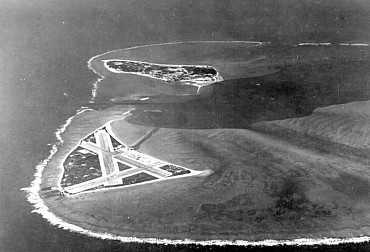April 4th 1949: The Birth of NATO and Its impact on global security
The 4th of April is a significant date in the annals of international relations and global security, marking the establishment of the North Atlantic Treaty Organization (NATO). Founded in 1949, NATO has played a pivotal role in the geopolitical landscape, especially during the Cold War and in the post-Cold War era. This article delves into the circumstances that led to its formation, the founding members, the core principles of the alliance, and its impact over the decades.

The prelude to formation
In the aftermath of World War II, Europe lay in ruins, and the world was divided into two distinct blocs: the Western democracies, led by the United States, and the Eastern communist states, led by the Soviet Union. This division led to a period of heightened tensions and rivalry known as the Cold War. The Western nations, concerned about the expansionist policies of the Soviet Union, felt a pressing need to establish a collective defense mechanism. This sentiment paved the way for the formation of NATO.
The founding of NATO
On April 4, 1949, in Washington, D.C., the North Atlantic Treaty, also known as the Washington Treaty, was signed by 12 founding members: Belgium, Canada, Denmark, France, Iceland, Italy, Luxembourg, the Netherlands, Norway, Portugal, the United Kingdom, and the United States. The treaty established NATO as a formal alliance committed to mutual defense against aggression.
Core principles and article 5
The foundation of NATO was built on several core principles, encapsulated in the treaty's preamble and articles. The members pledged to uphold democracy, individual liberty, and the rule of law. However, the most critical aspect of the treaty is Article 5, which states that an armed attack against one or more members is considered an attack against all. This principle of collective defense is the cornerstone of NATO's mission.
Expansion and evolution
Over the decades, NATO has expanded its membership and evolved its mission. The fall of the Berlin Wall and the dissolution of the Soviet Union led to a new strategic environment, prompting NATO to adapt its objectives and strategies. The alliance undertook peacekeeping missions in the Balkans, combated terrorism, and faced new security challenges like cyber threats.
Challenges and controversies
While NATO has been a cornerstone of Western security, it has also faced criticism and controversy. Debates over burden-sharing, the relevance of the alliance in the post-Cold War era, and its enlargement have sparked intense discussions. Additionally, NATO's military interventions, particularly in places like Kosovo and Afghanistan, have been contentious.
Conclusion
As we reflect on the 4th of April, the day NATO was established, it's clear that the alliance has been a central figure in global security for over seven decades. Its adaptability, enduring principles, and commitment to collective defense have helped maintain international stability. However, as the global security landscape continues to evolve, NATO must continue to adapt to new challenges and uncertainties.
The establishment of NATO on April 4, 1949, marked a significant moment in world history, shaping the strategic contours of the 20th and 21st centuries. As the alliance moves forward, its actions will continue to have a profound impact on global peace and security.










